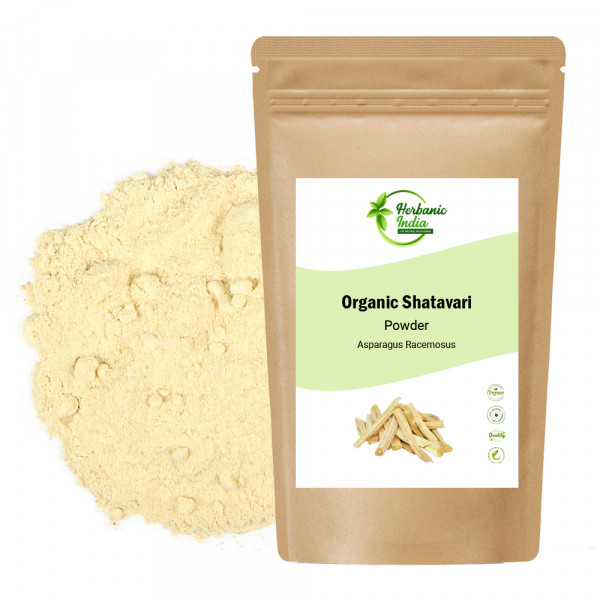Organic shatavari powder-asparagus racemosus
Asparagus racemosus belongs to the Liliaceae family and is commonly grown throughout India and northern Australia. It is a climber and is also known as Salwar, Satamuli, Shatavari, etc. it is widely used in Ayurveda due to its antioxidant and antibacterial effects. It is very useful in stimulating the immune system. Asparagus racemosus is also used by athletes to enhance their performance, control diabetes, etc. These herbs help cope with emotional and physical stress. Its anti-inflammatory and antioxidant properties help prevent damage to the body cells. The antioxidants present in the Shatavari herb are of three kinds, namely asparagine A, racemofuran, and racemosol. The organic Shatavari powder has many more benefits, such as treating hormone imbalance, treating gastric ulcers, etc. It is used in the form of loose powder or the form of a capsule as well. When taking Shatavari powder, it is recommended to take it with lukewarm water. The Shatavari powder may taste sweet as well as slightly bitter. The dose of the Shatavari powder depends on many factors such as age, weight, health, and other factors. You can mix the Shatavari powder in milk or juice at your convenience.
Keep in touch!
Description of Shatavari powder
- Due to its antioxidant properties, it helps treat the damaged tissues of the body.
- It helps treat viral infections because of its antiviral properties.
- It is also known to boost the immune system of human beings.
- The Shatavari powder treats not only gastric ulcers but also prevents future ulcers from informing.
- It is also helpful in treating symptoms like heartburn, hormonal imbalance in females, anxiety, irritable bowel syndrome, bladder and kidney stones, etc.
- It is also used in relieving pain.
Frequently Asked Questions
What are the chemical constituents of Shatavari?
The various chemical components present in the Shatavari are steroidal saponins which are also called Shatvarins, oligosaccharides, mucilage, flavonoids, alkaloids, etc. It also has many healthy minerals and nutrients such as calcium, copper, magnesium, potassium, cobalt, manganese, zinc, etc.
How is the Shatavari powder taken?
The dose of the Shatavari Powder depends on various factors such as age, health, weight, etc. One can always start with a minimum dosage and then increase according to how their body responds to the dose.
What are the known side effects of Shatavari powder?
Shatavari powder's risks include less research on humans and fewer studies on how the Shatavari powder reacts with other drugs. People who have asparagus allergies are recommended to avoid Shatavari powder.
- Chemical Makers
- Regular quality controls
- Guarantee 100 % pure , without adultration
- Organic Quality Available




